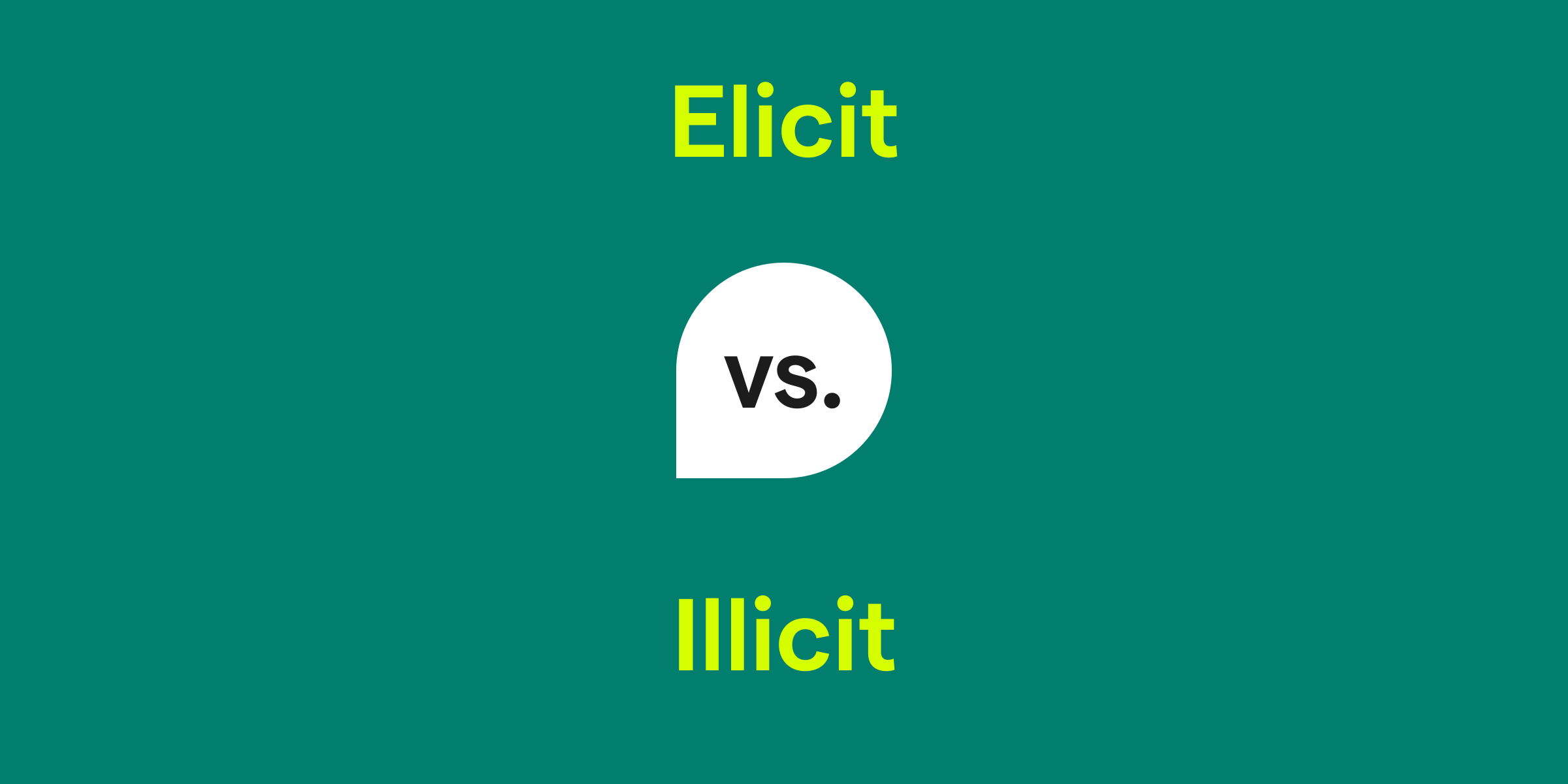Elicit vs. Illicit: What's the Difference?
Understanding the difference between elicit and illicit can be crucial, as they are homophones that carry distinct meanings. Elicit is a verb that means to draw out a response, information, or reaction from someone. It typically operates within a context of interaction or investigation. On the other hand, illicit, an adjective, is used to describe something that is illegal or not permitted by laws or rules. It is commonly associated with activities that are against societal norms or regulations.

How do you use the word elicit in a sentence?
The word elicit should be employed when referring to the act of bringing forth a reaction or response. It is used primarily in contexts where information or emotions are being drawn out, such as questioning, artistic expression, or discussion. As a verb, it is active and evokes the idea of extraction or revelation.
Examples of elicit in a sentence
- The comedian hoped to elicit laughter from the audience with his new jokes.
- Her evocative poetry elicits strong emotions in readers.
- Investigators tried to elicit truthful answers from the witnesses through careful questioning.
How do you use the word illicit in a sentence?
Illicit is used to describe activities or objects that are illegal or not sanctioned by controlling authorities. It often appears in discussions of law, moral conduct, or to denote the disapproval of particular actions. Illicit conveys the quality of forbidden actions, oftentimes with suggestions of secrecy and the outlaw.
Examples of illicit in a sentence
- The organization was accused of funding their operations through illicit means.
- She was charged with trading in illicit goods that were smuggled across the border.
- The detective uncovered an illicit affair that was at the heart of the scandal.
Elicit and illicit definition, parts of speech, and pronunciation
Elicit definition:
Elicit is a verb that means to provoke or draw out a reaction, answer, or fact from someone in reaction to one's own actions or questions.
Elicit parts of speech:
Elicit pronunciation:
Elicit is pronounced as "/ɪˈlɪsɪt/" with the emphasis on the second syllable.
Illicit definition:
Illicit, an adjective, is used to describe something that is illegal or forbidden by law, rules, or custom.
Illicit parts of speech:
Illicit pronunciation:
Illicit is pronounced as "/ɪˈlɪsɪt/" mirroring the pronunciation of elicit and distinguished only by context.
Elicit is a verb that means to provoke or draw out a reaction, answer, or fact from someone in reaction to one's own actions or questions.
Elicit parts of speech:
- Verb: The lawyer's questions were designed to elicit the truth from the defendant.
Elicit pronunciation:
Elicit is pronounced as "/ɪˈlɪsɪt/" with the emphasis on the second syllable.
Illicit definition:
Illicit, an adjective, is used to describe something that is illegal or forbidden by law, rules, or custom.
Illicit parts of speech:
- Adjective: The illicit substances were confiscated by the police during the raid.
Illicit pronunciation:
Illicit is pronounced as "/ɪˈlɪsɪt/" mirroring the pronunciation of elicit and distinguished only by context.
Elicit vs. illicit in a nutshell
Elicit and illicit, while sounding similar, have entirely different meanings and uses. Elicit as a verb translates to drawing out a response or extracting information. In contrast, illicit is an adjective describing actions or things that are illegal or against established rules. Being aware of the difference is vital in both written and oral communication, ensuring clarity and precision in language usage. Remember, if it's a response you're looking to draw out, elicit is the term you need; and if legality is in question, then illicit is the word that applies.
Get AI Writing Assistance Wherever You Type
Make sure your vocabulary is on point and every punctuation mark is in the right place, no matter where you’re working. Grammarly works across more than 1 million websites and apps so you can improve your writing without copying, pasting, or breaking focus.

More Commonly Confused Words
Interest piqued? Pore (not pour) over other commonly confused words to help your writing reach peak (not peek) performance.